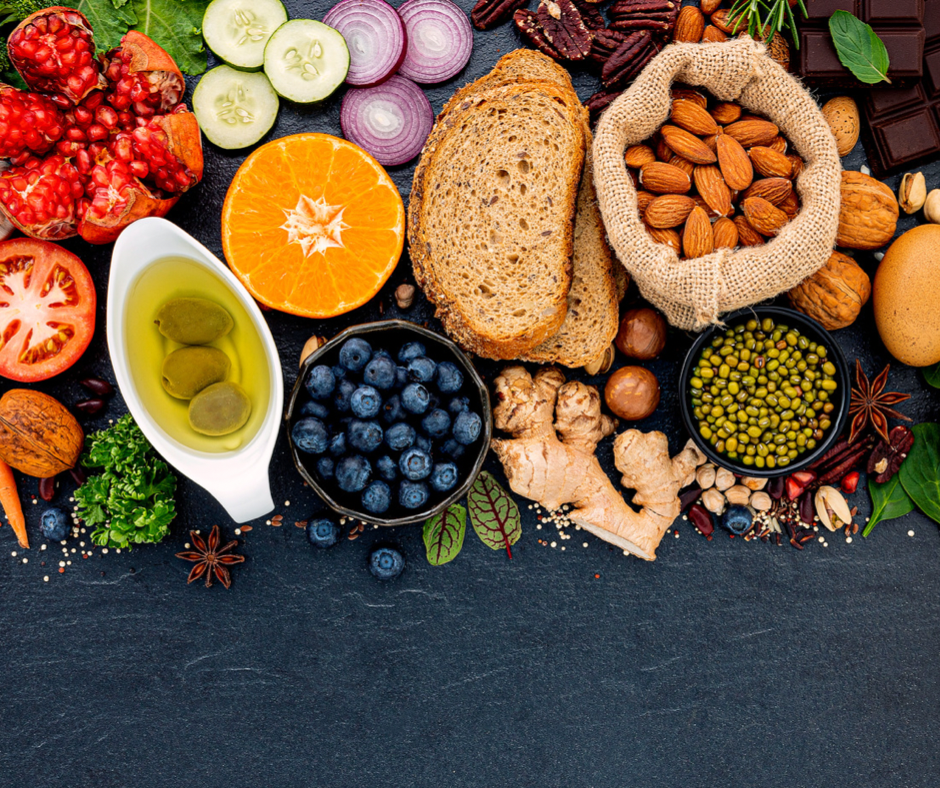
We use cookies to help you navigate efficiently and perform certain functions. You will find detailed information about all cookies under each consent category below.
The cookies that are categorised as "Necessary" are stored on your browser as they are essential for enabling the basic functionalities of the site. ...
Necessary cookies are required to enable the basic features of this site, such as providing secure log-in or adjusting your consent preferences. These cookies do not store any personally identifiable data.
Functional cookies help perform certain functionalities like sharing the content of the website on social media platforms, collecting feedback, and other third-party features.
Analytical cookies are used to understand how visitors interact with the website. These cookies help provide information on metrics such as the number of visitors, bounce rate, traffic source, etc.
Performance cookies are used to understand and analyse the key performance indexes of the website which helps in delivering a better user experience for the visitors.
Advertisement cookies are used to provide visitors with customised advertisements based on the pages you visited previously and to analyse the effectiveness of the ad campaigns.

Nutritionist, Lauren Walker, takes us through her top tips for optimising a vegan or vegetarian diet to ensure you reach your protein goal.
As more and more people are adopting veganism, there is a growing concern about getting enough protein on a plant-based diet.
However, getting enough protein on a vegan diet is not as difficult as some people may think. In fact, there are plenty of delicious, nutrient-dense plant-based sources that can be easily incorporated into your diet. Here are some tips on how a vegan/ vegetarian can get more protein in their diet.
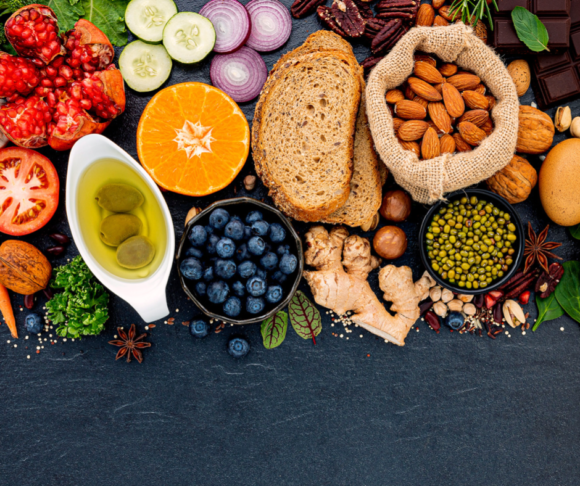
Protein is an essential macronutrient made up of building blocks called amino acids, which are needed for many functions within the body including the growth and repair of cells.
There are a total of 20 different amino acids which make up various proteins, nine of the 20 amino acids are considered essential, this means our bodies cannot produce them and we must therefore obtain them through our diet. Of these nine essential amino acids, three of them are all called branched-chain amino acids (BCAAs). You may have heard of these if you are into your supplements. These include leucine, isoleucine, and valine. While doses of leucine have been shown to independently stimulate increases in protein synthesis, a balanced consumption of the EAAs promotes the greatest increases in muscle growth (Jäger et al., 2017).
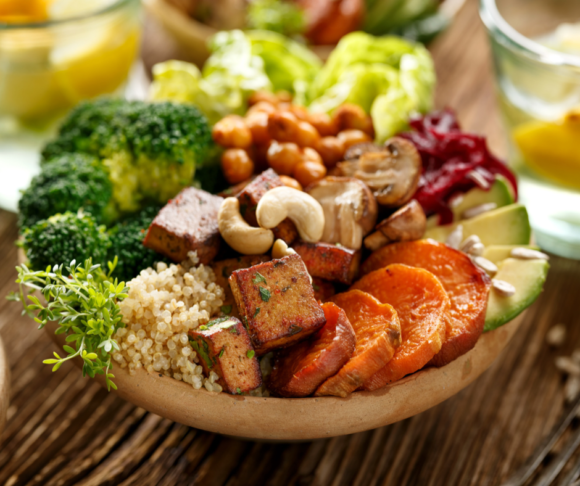
Legumes are a great source of protein for vegans. Beans, lentils, chickpeas, and peas are all excellent options that can be incorporated into a variety of meals. Hummus, lentil soup, and black bean burritos are just a few examples of delicious meals that can be made with legumes. Find what you enjoy!
Soy products like tofu, tempeh and edamame are also great sources of protein for vegans. Tofu is a versatile ingredient used in many dishes. Tempeh is great for sandwiches, tacos, and bowls! Edamame is great as a snack or in salads and stir fries!
Nuts and seeds are high in protein, healthy fats, and fibre. You can add them to your oatmeal, yoghurts, smoothies or just on their own. Do be aware, though they contribute towards your daily protein they do contain a relatively high amount of fat, therefore they aren’t very efficient sources of protein.
Quinoa, brown rice, and whole grain bread are also good sources of protein. Quinoa is a complete protein meaning it contains all the essential amino acids!
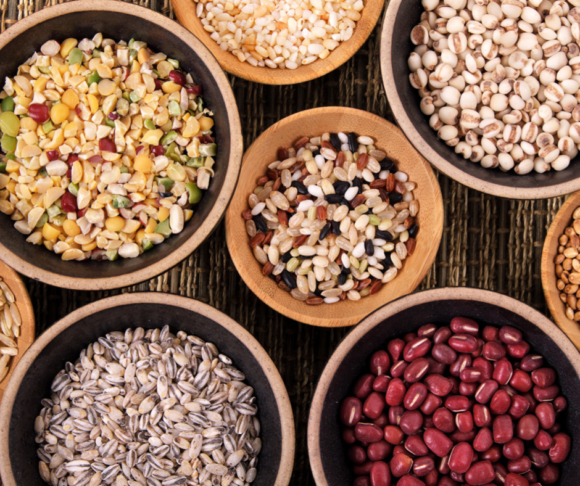
Broccoli, spinach, brussels sprouts are also good sources of protein, fibre, vitamins, and minerals!
If you’re having trouble meeting your protein needs through food alone, plant-based protein supplements like protein powder can be as convenient option. These include pea protein, soy, and hemp. Try choosing a protein powder which has a combination of different sources!
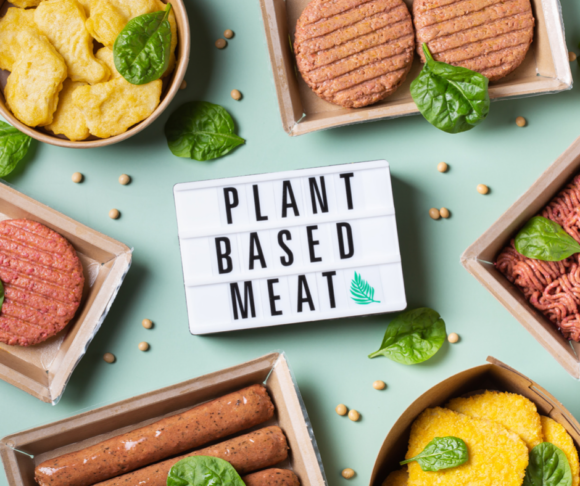
Over the recent years, the number of people adapting to a vegan/ vegetarian diet has skyrocketed. For those following a plant-based diet who have high protein requirements, eating tofu and beans daily can get very boring and lack in variety. Plant-based meats can be a good source of protein as they typically contain 10-20 grams of protein per serving. However, not all plant-based meats are created equal, some may be more nutritious than others.
– Ensure product has >12g of protein per 100kcal.
– <2g of saturated fat per 100g.
– Choose plant-based meats that are made from whole food ingredients and have a short ingredient list.
– <400mg of sodium per 100g
– Fortified with iron or zinc or naturally rich in these minerals (not essential but beneficial)
Overall, they can be a good source of protein for vegans and vegetarians but should be consumed in moderations and as part of a balanced diet. Choose the ones which are made from whole food ingredients and sustainably sourced.
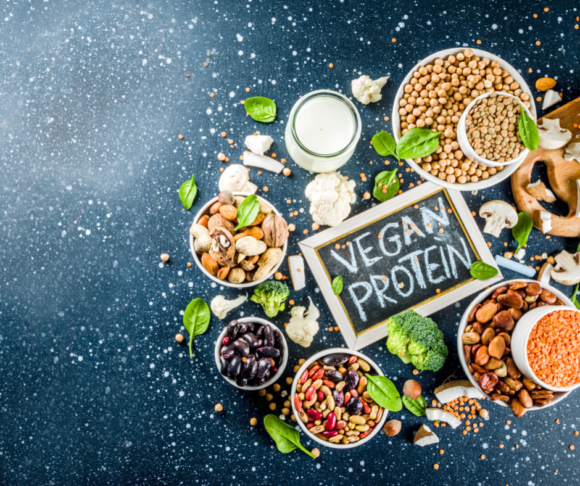
For the general population recommendations for non-athletic populations are around 0.8g of protein per kg body weight.
On the other hand, recommendations for athletes and active people vary between 1.4g/kg up to 3g/kg body weight depending on training, levels of muscle mass and goals. You can speak to a health professional to get more advice and guidance on what your personal nutritional requirements are!
For vegans, protein requirements are often 10-20% more than non-vegans. This is just due to the differences in the digestibility of plant-based protein and quality, versus animal-sourced proteins.
It is important to know that plant proteins are lower in essential amino acids than animal proteins. While animal-based proteins contain all the essential amino acids your body needs, plant-based proteins can be combined through protein complementation to provide all of the necessary amino acids. Eating a variety of plant-based proteins throughout the day can help ensure you are getting enough protein and all of the necessary amino acids.
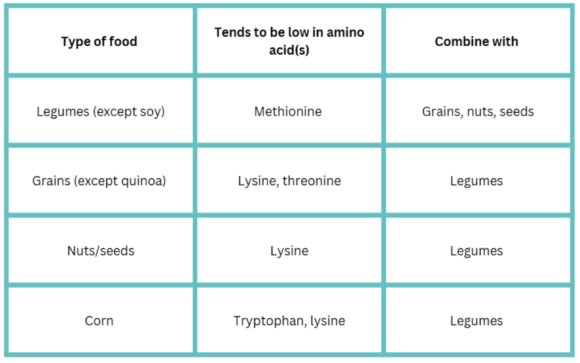
For the general population, this protein complementation can occur across the day by having a wide range of protein foods. You do not need to combine these sources in every meal!
If you are for instance making a vegetable curry, try to include chickpeas within the sauce and serve with a side of brown rice!
It is important to highlight that soy foods are an exception to this combing rule. And it is arguably the BEST plant protein. Studies show that amongst plant-based protein sources, soy foods are the most similar to amino acid profile of animal products.
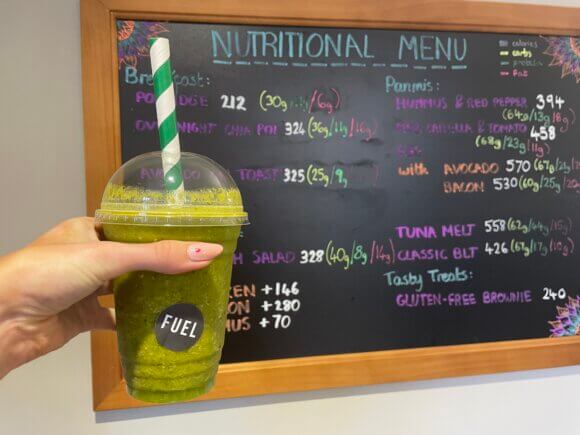
In conclusion, getting enough protein on a vegan diet is possible by incorporating a variety of plant-based protein sources into your meals. By being creative in the kitchen and trying new recipes and ingredients, you can ensure that you are getting all of the necessary nutrients for optimal health.
Fuel Coffeehouse + Kitchen have great vegan and vegetarian options available weekdays from 8am-2pm!
If you are interested in a Nutrition consultation with Lauren Walker, registered with the AFN, contact her via info@laurenwalkernutrition.com or visit her Instagram for more tips and tricks.

Get started with Instinct in Tarporley.
By continuing to use the site, you agree to the use of cookies. more information
The cookie settings on this website are set to "allow cookies" to give you the best browsing experience possible. If you continue to use this website without changing your cookie settings or you click "Accept" below then you are consenting to this.